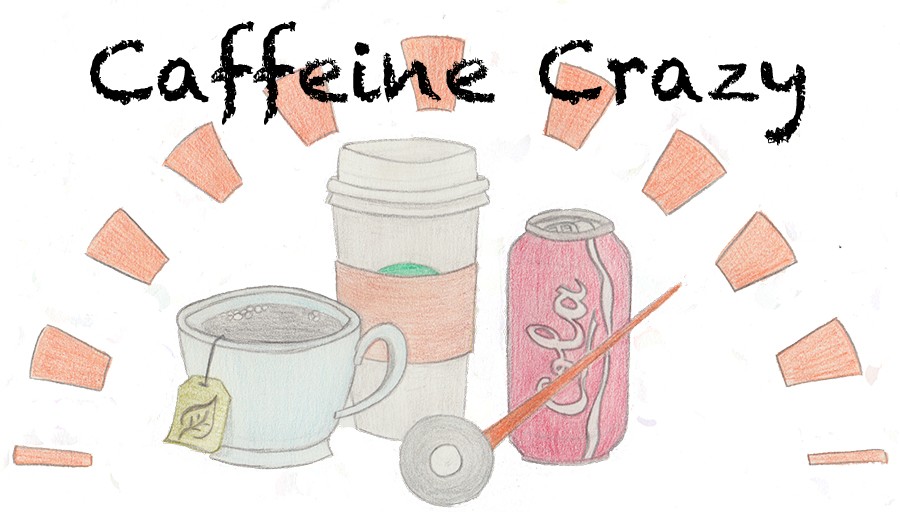It’s more than just caffiene
Caffeine takes over teens’ lives
March 23, 2016
Caffeinated drinks are most teenagers’ coping mechanism for a small amount of sleep, and it seems the more sugar and more caffeine added to them, the more teens depend on it for their energy.
According to Kidshealth.org only around 10 percent of teenagers get the proper amount of sleep. That means 90 percent of teens have to go through their highly stressful days without a sufficient amount of energy.
Out of 157 high school students surveyed by the newspaper, 90 of them prefer soda to both coffee and tea; 50 prefer tea, and 47 prefer coffee.
These results may mean that students are more concerned about the flavor while they choose their beverages than the caffeine.
There seems to be a stigma surrounding tea. Students tend to think of tea as an extremely healthy option, which is not always the case.
Coffee and tea are not necessarily unhealthy on their own in moderation, but teens pour them full of sugar, creamer and honey.
They also can become dependant on the caffeine from the coffee or tea just as easily as soda. It is just less evident because teens flock to soda as much for the taste as the energy.
One senior in a survey conducted by the newspaper said she prefers “soda because (she) needs its sweetness to balance out the bitterness of life.”
It’s also evident they care more about taste because 84 teens out of 135 think that coffee gives them much more energy than the other options, but the fewest people prefer it.
It is pretty unhealthy to drink these drinks very often because in a regular 12 oz. can of Coca Cola, most teens’ soda of choice, there’s 35 mg of caffeine. In Mountain Dew, there is an astronomical 54 mg of caffeine.
Soda can also be a contributing factor to obesity with 10 teaspoons of sugar per can and 150 calories. The amounts of sugar that are in these drinks can also cause cavities in teens’ teeth.
Kids who consume one or more of these unhealthy drinks a day become 60 percent more susceptible to obesity, according to Mytopdozen.com.
Taking into account the fact that 50 percent of Americans drink an average of two caffeinated beverages a day, and 25 percent drink up to 20 of these drinks a day, people are in danger of obesity, according to Energyfiend.com
Caffeine is actually a drug and stimulant, which is why companies have added it to drinks. It goes after the nervous system, making people feel more energized. The companies add sugar to the caffeinated drinks to mask the naturally bitter taste of caffeine
The problem is that people do get addicted to it just like any other drug. Addiction to caffeine can seriously disrupt a persons day. People who usually drink a lot of caffeinated drinks get withdrawal symptoms if they try to stop drinking abruptly.
Headaches, irritable behavior, drowsiness and an overall slowness can occur from trying to stop depending on these beverages.
On the other hand, a person can still have bad side effects while drinking them, such as difficulty falling asleep, shaky hands, and dehydration. Caffeine can even cause dizziness.
The best advice for those wanting to quit is to slowly cut back on the amount one drinks and to drink plenty of water.
Teens like this senior from the survey conducted by the newspaper who said she “used to drink soda, but now only drink(s) water” are improving their sleeping habits and lessening the harmful symptoms of caffeine.
Getting over the addiction can lead to more sleep at night and less anxiety throughout the day.
Overall, caffeine is a quick fix to a heavy lack of sleep, but its addictive nature makes teens extremely dependent on it.

